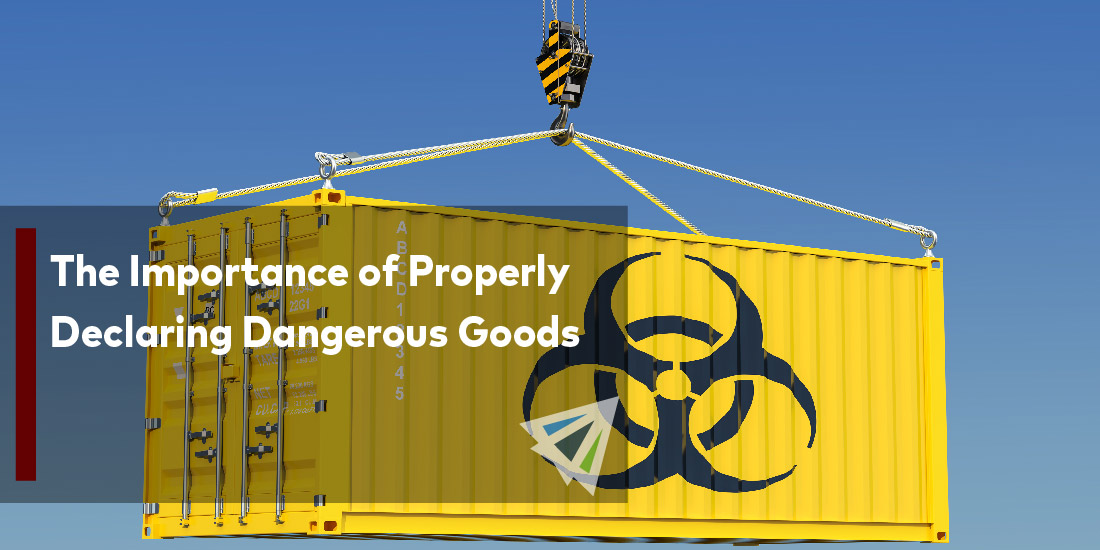The security of the workforce, the integrity of the supply network, and consideration for the environment are of utmost importance in the complex world of global logistics and supply chain management. The incorrect declaration or labeling of dangerous cargo is a serious problem for the transportation sector.
Such carelessness has increased the number of fires, fatalities, and environmental catastrophes on container ships. Organizations like the World Shipping Council (WSC) are acting decisively to strengthen cargo safety standards and safeguard lives, the environment, and the global supply chain in response to this disturbing trend.
Container Ship Fires Pose Serious Risks
There has been an alarming rise in container ship fires over the past ten years, and many of them have resulted in fatalities and severe losses. The 2023 Allianz Safety and Shipping Review lists 64 documented fires aboard containerships over the course of the previous five years. Even more alarming, according to the TT Club, a serious ship fire happens once every sixty days or so. Hazardous cargo that has been incorrectly declared, not declared at all, or inadequately packed by shippers is frequently to blame for these incidents.
The transportation of dangerous commodities is governed by extensive international and national standards, although non-compliance is still an issue. Such infractions not only make detection more difficult, but they can also start ship fires, which significantly increases the difficulty of firefighting efforts. The need for improved safety measures is underscored by the over 17 percent increase in fire-related catastrophes at sea in 2022.
Cargo Safety Program
The WSC is leading a comprehensive strategy to protect lives, protect the marine environment, and secure cargoes and vessels in recognition of the urgent need for greater safety measures. The goal of this program is to create a standard industry procedure for cargo screening and inspections, while simultaneously building on the screening procedures and standards now used by member carriers.
WSC President and CEO John Butler emphasizes the potential effects of this voluntary program called the Cargo Safety Program: “A uniform industry approach to cargo safety will promote a safer working environment for ship personnel as well as for everyone involved in inland transportation, port operations, and terminal labor. By avoiding unsafe shipments that could interrupt the supply chain, it will increase the efficiency and dependability of ocean transportation for shippers,” Butler said.
Digital Solutions Provide a Glimmer of Hope
The Common Screening Tool, Verified Shipper Database, and Database of Approved Container Inspection Companies will be the main digital components of the Cargo Safety Program. The foundation of the endeavor will be this system, which will be run by an unaffiliated third-party vendor.
The central purpose of the digital system will be filtering booking information using a risk algorithm and a large keyword library. Bookings that pose a high risk will be marked for additional examination and perhaps inspection. The screening tool will be continuously improved depending on the experience gained.
The main goal is to spot hazardous situations and fix them before containers containing hazardous cargo are added to the supply chain.
Conclusion: Creating a Safer Future
A 2020 incident off the coast of Hawaii, where 1,900 containers, some of which contained hazardous materials, were lost due to bad weather, emphasizes how crucial it is to declare hazardous materials correctly. This terrible tragedy serves as a vivid illustration of how such statements can both save lives and safeguard the environment.
Proper disclosure of dangerous items can mean the difference between life and death, in addition to helping involved parties with avoiding penalties or delays in shipments. It gives important information on handling and cleanup in case of accidents and enables authorities to send out timely warnings to adjacent vessels. The identification, separation, and safe management of dangerous products during their transit depend on the accuracy and thoroughness of the shippers’ declarations.
It is crucial to declare dangerous items accurately in a world where international trade and shipping are vital to economies. It’s a shared obligation that cuts across sectors and geographical boundaries and has the power to save lives, protect the environment, and ensure the sustainability of the world’s supply chain for future generations.
Should you have any questions regarding this and how it could impact your shipments, please reach out to our team today.
Additionally, we have our weekly market updates that can provide you with relevant freight news, updates, developments across the industry, and more.
